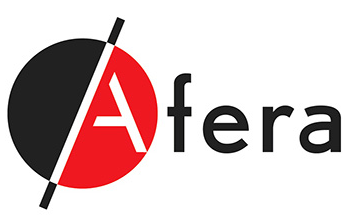
Afera Annual Conference 2020
GO TO 2021 EVENT WEBSITE | GO TO ANNUAL CONFERENCE PAPER ARCHIVE |
“Right now there are plenty of new opportunities—doors opening—so in that mood and mindset, we went back to the drawing board when creating this Conference,” says Afera MC/Moderator and Independent Strategist Bert van Loon. “If you have a physical Conference, the concept is that you bring people together in a physical space for a limited time, and you have to squeeze the whole Programme into 2 days.
“In doing this in an online environment, the advantage of this medium is that we can spread it out over a longer time period, enabling us to process the content of Sessions better, to prepare for and focus on specific sessions.”
This year’s Programme is centred around the key Industry topics of sustainability and circularity. In close collaboration with Afera’s Sustainability Working Group, the organising committee prepared a dynamic programme based on feedback from senior management and sustainability experts from a great number of Afera Member Companies surveyed earlier this year. The outcome is a series of 6 biweekly, 90-minute sessions covering a wide range of topics from regulation to raw materials, from supply chain sustainability to stakeholder management, and from business models to bonding your organisational structure to achieve results in sustainability. All Afera Member Company employees registered for free.
15 October – Context and regulation
Kavitha Ravikumar, strategy adviser and independent consultant, used a combination of industry and academic insights to set the scene by taking us through various schools of thought and trends and touched on the broader topics around sustainability. Over the course of the Conference, we will reflect on how we as individuals, organisations and an industry association can define and scope our own visions on sustainability, as well as set goals and a framework for making them actionable. Read
Paulo Da Silva Lemos, policy officer at European Commission DG ENV, B1, updated us on the E.U. Plastics Strategy, Circular Economy Action Plan, Green Deal, Chemicals Strategy for Sustainability and Product Environmental Footprints. Read
29 October – Measurement methods and data
Anne Gaasbeek of PRé Sustainability discussed the importance of substantiating sustainability claims with measurement and how this is used by industry leaders to build a business case. She dived into how you can measure the environmental, social and circular impact of your products and the main trends and developments such as the PEFCR and harmonised sector approaches. Read
Lorenzo Zullo, co-founder and managing director of Chemycal and CEO at ChemChain, discussed how emerging technologies contribute to sustainability by allowing companies to share and control their data along the value chain. Read
12 November – Materials, technologies, products
Dr. Angelika Roser, global sustainability manager at BASF, discussed reducing CO2 emissions of adhesives.
Dr. Karlheinz Hausmann, global TS&D fellow for packaging and specialty plastics at DOW, discussed bio-polymers as part of moving towards a circular economy.
Morgane Burgorgue, EMEA marketing manager, and Render de Vos, technical manager of R&D for pine chemicals, both at Kraton, discussed bio-based product building blocks of the bio-economy.
These led to a larger panel debate on strategies, prioritisation processes and technical challenges to improve sustainability throughout the tape industry value chain. Read
26 November – Supply chain sustainability
Andreas Zamostny, co-founder and managing partner of Schlange & Co. GmbH, as well as vice president of S&C North America Inc., explained which supply chain aspects contribute to a sustainable product, how procurement can be empowered to practice sustainable supply chain management and what the advantages of collaboration along supply chains are.
Implementing sustainability in the supply chain requires time, patience and is associated with challenges. The implementation of sustainable supply chain management is therefore often only done due to customer requirements and legislation, i.e. it is risk-driven. However, sustainable supply chain management can be an enabler of product innovation and value creation. With the knowledge of purchased materials, their sources and processing, as well as the procurement markets, the suppliers and their sustainability performance, purchasers can influence how sustainable a product is. Read
10 December – The organisational challenge
Nathalie Ruelle, global quality and sustainability director of the global business unit Hygiene, Health and Consumables (HHC) at H.B. Fuller, shared her vision and experiences of developing the organisational culture and structure to support sustainability within her company. Responsible for leading quality and sustainability strategy and its execution in alignment with corporate H.B. Fuller policy, she offered an international view of organisational challenges, specifically how she has combined different cultures and generations to build an effective organisation which turns ideas into actions.
Joseph Owolabi of the Centre for Sustainability Transformation presented a primer on accelerator models for engaging people on sustainability.
The session ended with a brief introduction of Afera’s Sustainability Working Group chaired by Martijn Verhagen, Afera Technical Committee Member and team leader for liquid coated adhesives at Lohmann GmbH & Co. KG.
14 January – Building the business case for sustainability
The focus of this last session was deciding on the goals and products we could and should adopt as an industry value chain. In the past 5 sessions, we have concentrated on definitions and scope, supply chain topics, raw materials and recycling, metrics and data access, and organisational challenges in companies and their wider organisational eco-systems for turning ideas into action. Now, Gil Stevens, external relations and sustainability director of EDANA, the leading global association and voice of the nonwovens and related industries, presented “How EDANA designed and implemented the business case for sustainability and circularity for the nonwovens community.”
This was the grande finale of Afera’s 2020 digital Annual Conference series. From here, the Sustainability Working Group will pick up the baton in defining and activating one or more association goals and projects. Following Mr. Stevens’ presentation, Afera Regulatory Affairs Manager Pablo Englebienne and Sustainability Working Group Chairman Martijn Verhagen introduced the idea of possible Afera project topics, which were then developed in moderated breakout room discussions. The highlights were shared by the moderators when everyone rejoined the plenary session. Read
Our 2021 Annual Conference will take place from 29 September to 1 October at Hotel Las Arenas Balneario Resort in Valencia, Spain.
Afera’s recent Annual Conferences
2020 – Online – “Sustainability and circularity”
2019 – Lisbon, Portugal – “Making the tape business future-proof”
2018 – Athens, Greece – "Innovation and digitisation in adhesive tape technology"
2017 – Turin, Italy – "The next Generation of Tape Makers and Users"
2016 – Hamburg, Germany – "Managing at the speed of change"
2015 – Marseille, France – “What is our next frontier?”
2014 – Dubrovnik, Croatia – “The future of the European adhesive tape industry: Technology, trends, and markets”
2013 – Taormina, Sicily, Italy – “Moving from survival to growth in the post-crisis tape market”
2012 – Madrid, Spain – “Sustainability: Hype or your chance now?”
2011 – Berlin, Germany
2010 – Stockholm, Sweden
2009 – Cracow, Poland
2008 – Florence, Italy – Afera’s 50th anniversary celebratory conference press release
2007 – Barcelona, Spain
2006 – Nice, France

